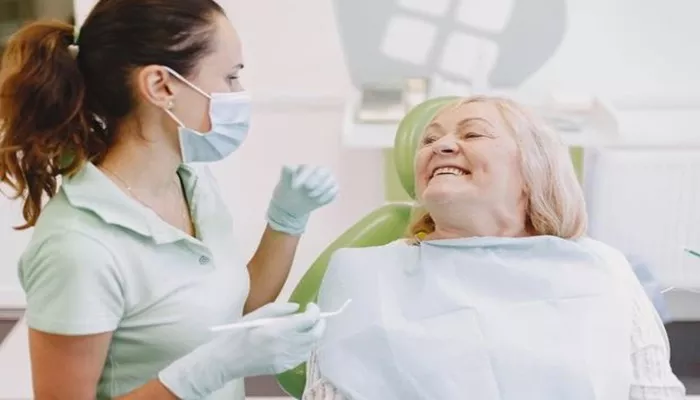Bobby Moske’s struggle with dental care highlights a significant gap in California’s Medi-Cal program. Several years ago, when Moske, now 75, visited a community clinic for a toothache, he found it nearly impossible to find a dentist in Marin County who accepted Medicaid for a root canal. Marin Community Clinics referred him to a San Francisco dentist about 20 miles away, but by the time he received authorization, his tooth had decayed beyond repair and had to be extracted.
This was the sixth time in a decade that Moske lost a tooth due to inadequate dental care. Now, as a behavioral health peer specialist, he uses a denture that he must remove during meals, making eating a difficult task. He often struggles to chew, restricting his diet to softer foods and avoiding items like nuts and steak. This situation sometimes causes embarrassment in social and professional settings.
“I feel like people think I don’t take care of myself, even though I try very hard,” Moske said. “I try not to smile when I’m out.”
California is among a growing number of states offering comprehensive dental benefits to Medicaid recipients. However, many dentists do not accept Medi-Cal, making new benefits insufficient if patients cannot access care. The UCLA Center for Health Policy Research reports that only 21% of California dentists treated Medi-Cal patients from 2019 to 2021, and many limit the number of Medi-Cal patients they see. Elizabeth Mertz, a professor at the University of California, San Francisco, notes that only about 15% of adults receive dental care annually through Medi-Cal.
“The coverage is essentially useless,” Mertz said. “Although the state provides coverage, very few dentists accept it.”
A proposed bill in the California Legislature aims to address this issue by expanding Medi-Cal coverage to include dental implants and crowns. Currently, Medi-Cal only covers implants in cases of “exceptional medical conditions.” Mike Adelberg of the National Association of Dental Plans notes that about half of PPO plans nationwide cover implants, though specific figures for private dental plans are unclear.
Senator Aisha Wahab, who introduced the bill, argues that Medi-Cal patients should have access to implants if their dentist deems it necessary. “Those in the most vulnerable positions deserve this benefit,” Wahab said.
The Senate approved the bill unanimously in May, and it is awaiting a vote in the Assembly Appropriations Committee.
Democratic Governor Gavin Newsom’s spokesperson, Elana Ross, declined to comment on the bill.
According to the Centers for Disease Control and Prevention (CDC), 40% of U.S. adults have had permanent teeth extracted.
Low-income older adults are at higher risk of tooth loss, which can affect comfort, eating, and speaking. Prosthetic options like bridges and dentures are available but can be expensive, particularly for those without insurance or on limited government programs.
Implants are considered the “standard of care” for tooth replacement, said Sohail Saghezchi, director of UCSF’s oral surgery residency program. He notes that implants allow patients to eat a wider variety of foods compared to dentures or bridges.
The Department of Health Care Services (DHCS) estimates that expanding Medi-Cal coverage to include 1.5 million implants could cost between $4 billion and $7 billion annually. This is a significant concern given California’s recent budget deficit of $46.8 billion. The cost of an implant varies, with DHCS estimating reimbursements between $3,000 and $4,500 per implant. FAIR Health reports that median charges for implants in California ranged from $4,000 to $4,800 between October 2022 and September 2023, with costs in San Francisco reaching up to $8,000.
“Reimbursement rates must cover the costs of providing the service,” said Alicia Malaby of the California Dental Association. She added that without proper investment, coverage remains ineffective.
The California Dental Association opposes the bill, citing concerns about the invasiveness of implant surgery, which requires ongoing follow-up. Instead, the association is supporting legislation to cover two dental cleanings and examinations annually for Medi-Cal patients aged 21 and older.
DHCS spokesperson Leah Myers stated that since Proposition 56 passed in 2016, Medi-Cal reimbursements to dentists have increased, and a web-based app was created to recruit more dentists. As of July, over 14,000 dentists—about 40%—were enrolled in the Medi-Cal program.
For individuals like Moske, finding a dentist and receiving necessary care remains a challenge. Data shows that three out of four Medi-Cal patients aged 21 and older did not have a dental appointment in 2023.
During his testimony in support of the implant bill in June, Moske showed lawmakers his denture, saying, “I’m here to show you something. Please don’t be offended. These are the teeth I lost.

